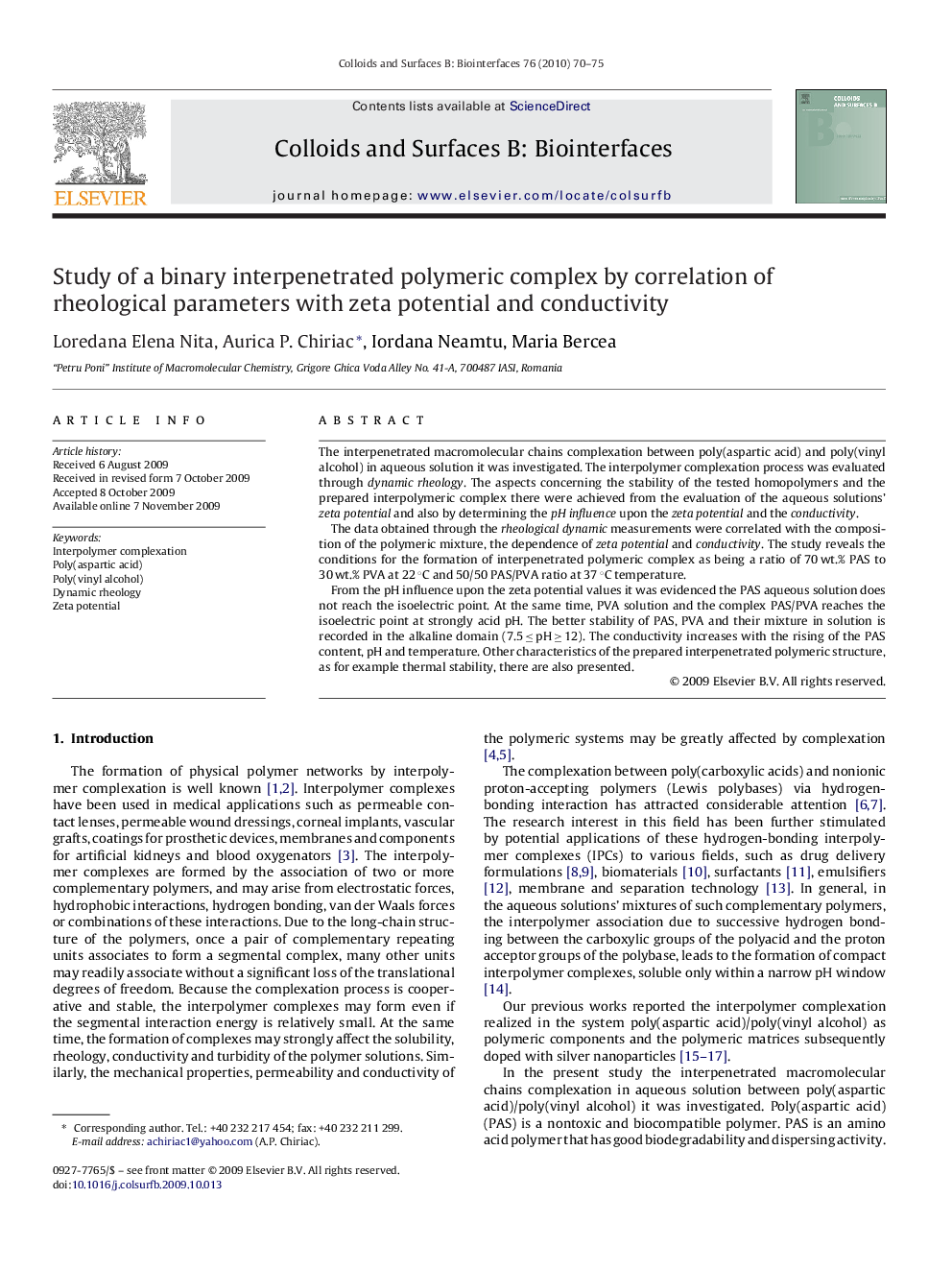| Article ID | Journal | Published Year | Pages | File Type |
|---|---|---|---|---|
| 601997 | Colloids and Surfaces B: Biointerfaces | 2010 | 6 Pages |
The interpenetrated macromolecular chains complexation between poly(aspartic acid) and poly(vinyl alcohol) in aqueous solution it was investigated. The interpolymer complexation process was evaluated through dynamic rheology. The aspects concerning the stability of the tested homopolymers and the prepared interpolymeric complex there were achieved from the evaluation of the aqueous solutions’ zeta potential and also by determining the pH influence upon the zeta potential and the conductivity.The data obtained through the rheological dynamic measurements were correlated with the composition of the polymeric mixture, the dependence of zeta potential and conductivity. The study reveals the conditions for the formation of interpenetrated polymeric complex as being a ratio of 70 wt.% PAS to 30 wt.% PVA at 22 °C and 50/50 PAS/PVA ratio at 37 °C temperature.From the pH influence upon the zeta potential values it was evidenced the PAS aqueous solution does not reach the isoelectric point. At the same time, PVA solution and the complex PAS/PVA reaches the isoelectric point at strongly acid pH. The better stability of PAS, PVA and their mixture in solution is recorded in the alkaline domain (7.5 ≤ pH ≥ 12). The conductivity increases with the rising of the PAS content, pH and temperature. Other characteristics of the prepared interpenetrated polymeric structure, as for example thermal stability, there are also presented.
